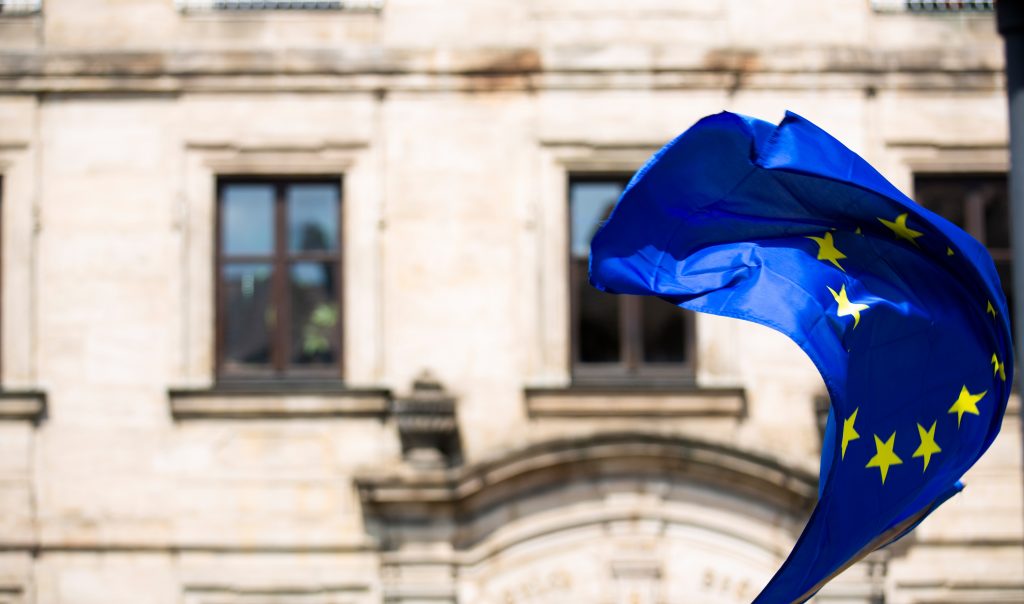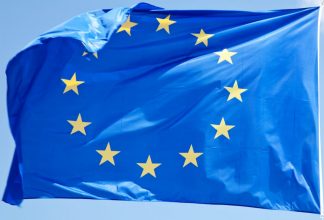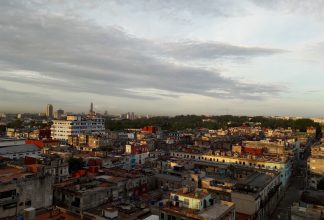The European Union and the True Cuban Civil Society

Letter #26 and #27 by Roberto Jesús Quiñones Haces.
In July 2019, Civil Rights Defenders invited Cuban human rights defenders and civil society organisations to contribute with texts on how the European Union should work towards Cuba. This letter is written by Roberto Jesús Quiñones Haces.
Roberto Jesús Quiñones Haces was detained and taken to prison in September 2019 after being convicted by the Guantanamo Court for the crimes of “resistance and disobedience” after he attempted to cover a trial of public interest. He was sentenced to one year in prison for exercising his job as a journalist. Read more about his case here.
A report with all of the letters will be presented during a seminar in the European Parliament on 4 February. Until then, you can read some of the texts here in Spanish, and here in English.
The European Union and the true Cuban Civil Society
How could the EU cooperate with the independent Cuban civil society that promotes democratisation and respect for all human rights?
The European Union (EU) is in a renovation process. Under this context, the expectation is rising in respect to the path that its relations with the Cuban regime could take. In this regard, the question is whether the European bloc will continue to apply the policy adopted by outgoing Federica Mogherini or if it will adopt more dignified channels; it has become particularly relevant to those Cubans interested in introducing much-needed changes to our country.
The Cuban regime usually presents as institutionalized civil society organisations, those s belonging to unionise and mass organisations that are actually serving as conveyor belts to accomplish its mandates. The Committees for the Defence of the Revolution (CDR), the Federation of Cuban Women (FMC), Federation of High School Students (FEEM), the University Student Federation (FEU), the Workers’ Union of Cuba (CTC) and many others are called Cuban civil society organisations because they are led by the Ideological Department of the Central Committee of the Communist Party of Cuba, and they are used in acts of repudiation when they receive orders from State’s Security. These are satellite organisations of the Cuban Communist Party and from this party they receive the buildings to house their headquarters, the salary paid to those who lead them and the stipends for their travels abroad. Its directors are designated by such department.
In Cuba, there are numerous independent organisations that the regime has not recognised because they do not accept its control and they keep fighting for those ideas rejected by the Castro regime. Besides, their project for the country is different from the government-imposed one. For that reason, they are denied a space within Cuban society and are prevented from legalising their status in the Ministry of Justice’s Registry of Associations. In that diversity that represents the true Cuba civil society, we find the human rights movement and the peaceful political opponents that fight so all Cubans can have civil and political rights; so that Cuba be democratised, and so that opinion of all its citizens can heard and considered within a space of tolerance. There are also organisations that represent very specific interests.
How could the institutions of the EU and the member states cooperate with the independent Cuban civil society that promotes democratisation and respect for all human rights? How could they promote cooperation between that discriminated and repressed civil society and European civil society?
I think that the true Cuban civil society is very much in need of international support and solidarity. Without intending to exhaust the issue, nor believing that I include all possible actors, several come to mind such as the Independent Libraries project, writers discriminated against by their political position; the alternative media published in Cuba and independent journalists; as well as trade associations, artistic projects, etc. Of course, I include in that diversity the peaceful opponents whose actions have demonstrated systematicity and relevance in favour of the democratisation of the country.
The Independent Libraries project plays a very important role in the promotion of authors and books that have been prohibited and restricted in Cuba, the free circulation of ideas and the creation of spaces for debating topics that are of public interest. The repercussions of these activists’ work are invaluable and extremely beneficial for a society that is marked by the state-imposed intolerance and despotism. The EU could establish links with the representatives of that project and send books and films that are not published in Cuba.
It would be recommendable that, among those materials, there were books by Cuban authors censored by the regime. I speak not only of writers but also of historians, sociologists and jurists. It would be positive if the films were about the history of Cuba and the Castro regime, unknown by most Cuban youth. That project should also receive texts about the methods of nonviolent struggle and how to achieve its effective structuring, according to our circumstances.
The mass communication media created in an alternative way from those that are controlled by the regime, should receive grants so its members would be able to participate in training courses on the use of new technologies. They should also receive support in materials and finance, such as new and relevant books. A contest could be created to reward the best works published in these media.
Cuban writers who live in the country in the greatest ostracism and are discriminated against by the regime and its satellite organisations, such as the Union of Writers and Artists of Cuba (UNEAC) and the Brothers Saíz Association (AHS), should receive scholarships to facilitate their creativity and to support the publication of their works in Europe.
Projects, such as People in Need and others, dedicated to helping families in vulnerable situations also have a presence in Cuba. The Patriotic Union of Cuba (UNPACU) also performs laudable work in that regard. That is why its growth and social impact has been met by the regime’s fierce repression.
Supporting with concrete actions to organisations such as these ones would not only provide tangible benefits in the lives of Cubans, but also, will contribute to enhance and strengthen the presence and leadership of independent civil society, and of those who represent it. Obviously, the regime will protest against this kind of exchange and support from the EU. It will be up to the EU to decide if it will adopt a supplicatory position before the Castro regime, or if it will choose to defend the rights of the independent Cuban civil society.
The EU could also assume a policy of solidarity and permanent support for Cuban independent civil society organisations by creating scholarships and courses for its members, with the aim that this noble struggle could be spread throughout the country in defence of all human rights, and of democratisation.
In this sense, the European civil society’s corelated organisations play an important role because they can share their experiences with their Cuban counterparts. It would be very productive if the involved European civil society organisations were created in the former European socialist countries.
In general, I think that the EU could also support the Cuban independent civil society inside the United Nations, in the organisations that defend human rights and at any international event where the EU is participating; and by condemning the daily doses of repression that the members of this social sector receive and conditioning its economic aid according to the regime’s response.
If there is no change from the Castro regime in regard to the respect of human rights for all Cubans, and for the democratic transition that our country needs; it would not be honest that the EU continues to give money to the regime because that would strengthen it, as it has been happening up to now.
The EU policy regarding Cuba will not bear fruit in terms of the country’s democratisation and respect for human rights if it continues to own unacceptable concepts such as that of Mrs. Mogherini, who said Cuba is a one-party democracy.
Before uttering such unfortunate phrase, Mrs. Mogherini must carefully read Rosa Luxemburg, a worthy German communist leader assassinated by the Nazis. She dreamed of a better society for all citizens; she considered that a society ruled by only one party did not create freedom or democracy; not even for the members of such party. She was correct. And so, it happened in the former Soviet Union, in the People’s Republic of China, North Korea, Vietnam and Cuba.
Since 2008 to 2014, the EU gave the Cuban regime 9 million euros as part of its cooperation for development. For the period 2014-2020, it has assigned 55 million euros, and since 1993 to today, it has given more than 94 million euros for humanitarian aid. The total sum of those gifts is well beyond 158 million euros, this money has gone straight into the Castro regime vaults and has shown very little results. Taking into consideration that when the annual budget is approved by the National Assembly of the Popular Power, the people is never informed of the amount of money allocated for the Revolutionary Armed Forces and to the Minister of Interior Affairs. It is possible that part of that money has gone to those organisations that used as tools for repressing the independent civil society.
It is about time for the EU to think a little bit more about the agents of change and to forget those who held back the progress.
EU: The five that remain and Cuba
Ursula Von Leyen, a German politician who up to now was her country’s Defense Minister, has just been elected President of the European Commission; she is also the first woman to occupy such high position.
Juventud Rebelde, a Cuban newspaper tied to the regime, tried to dirty up her image by questioning the fact that she was elected by a small difference in the number of votes. It also added that she is considered one of the less able ministers within the German government. However, the aftermath of her first speech before the European chamber, delivered just hours after her election, indicates that her projections have been well received.
Back in December 2016, the European Union’s common foreign policy towards Cuba was repealed and the Political Dialogue and Cooperation Agreement (PDCA) was signed. After this, many believed that the relations between the European bloc and the Castro regime would result in benefits for the Cuban people; but once the new agreement was signed, the regime began receiving economic aid and it kept a policy that tended to consolidate the dictatorship.
The European Union (EU) still is Cuba’s main exporting partner and second commercial partner, according to verifiable data found in the internet. It is also the island’s main foreign investor in areas such as tourism, construction, light industry and agrarian industries. Europeans make up a third of the total of tourists that visit Cuba.
In 2016, the EU exported 2,400 million euros to Cuba and since 2008 to 2014, it gave 9 million euros to support development. During the period of 2014-2020, it assigned another 50 million euros and 5 million more to support social projects for human groups in a vulnerable position. Since 1993, it has given more than 94 million euros in humanitarian aid.
To keep the PDCA in such conditions would constitute an authentic boost from the EU to Cuba, in detriment of the human rights that the regime violates daily.
Europe, the basis of a solid cultural and legal tradition that has set a standard in the world, should not continue to exercise a policy that perpetuates the suffering of the Cuban people and affirms that it is committed to democracy and the defence of human rights. Such a position is extremely hypocritical if it is about Cuba.
One of the most common mistakes made by organisations and relevant international political personalities is to belief that they get a correct political view of what happens in Cuba by visiting the country only once and having conversations with the regime’s leaders. Their evaluation would never be objective without listening to the testimonies and evaluating the proofs from members of the true Cuban society; that same one that does not depend on the regime and does not receive brand new housing, salaries and financing to travel throughout the world doing propaganda for the dictatorship. We, the Cubans, are the ones who truly know the country’s situation.
If those institutions and personalities do not directly contact the people, nor visit the prisons and freely interview political prisoners; or visit the ghettos, or learn about the independent journalists’ testimonials, or have access to the complaints of citizens that have petitioned for an effective judicial protection, or if they are not interested in learning from multiple sides about the traumatic events of recent Cuban history; then, that reflects a great impunity sanctioned by the state, and could, therefore, never have an objective vision of the fulfilment of human rights here.
Whoever has the responsibility of succeeding Mrs. Federica Mogherini at the forefront of the bloc’s foreign policy will inherit a very complacent way of acting with respect to the Cuban regime, to the point of accepting that it imposes its peculiar interpretation of human rights on its relations with the EU, contrary to what is accepted by that bloc and by most countries with the aggravating fact that the regime defends that position without ever allowing the people whom it claims to represent give their opinion on this issue. Since 1959 until today it has lacked mechanisms to express its will unequivocally and under the supervision of international observers.
The PDCA defined a framework to support the reform process in Cuba. What transcendent political reforms have been in Cuba since December 2016 to date? None. What has happened since then that has benefited Cubans politically and favoured their empowerment? Nothing. If any Euro-deputy has any doubt about the answers to these questions, he or she just has to read the text of the new Carta Magna (Constitution) to verify that, far from supporting political aperture, the Castro regime consolidates its vocation for continuity.
There are still five countries that have not ratified the PDCA. Those are Ireland, Italy, Lithuania, The Netherlands and Sweden. It would be a huge political incongruence to do so while the actual conditions are maintained.
It is true that the path to confrontation does not bear good results, but a dialogue where the Cuban people’s elemental rights are excluded in perpetuity constitutes an execrable position and even more so coming from Europe.
In that dialogue the European Union must clearly express that human rights cannot be applied or interpreted according to the regime’s political convenience, as it is established in the 30th article of the Universal Declaration of Human Rights: “Nothing in this Declaration may be interpreted as implying for any State, group or person any right to engage in any activity or to perform any act aimed at the destruction of any of the rights and freedoms set forth herein.”
I have no doubt that someday there will be a democracy in Cuba, and then, the people would act against those that instead of supporting their claim to obey their human rights, turned a deaf ear upon the Castro regime’s impunity.
The EU has the opportunity to demonstrate, once and for all, if its policies are inclined to obeying economic interests or to the noble ideals that it has committed to in multiple international judicial instruments.
Roberto Jesús Quiñones Haces, independent journalist
About Roberto Jesús Quiñones Haces
Roberto Jesús Quiñones Haces was born in Cienfuegos, Cuba, in 1957. He is a lawyer and a freelance journalist.
In 1999 he was punished, unfairly and illegally, to eight years of deprivation of liberty, and since then he has been prohibited from practicing as a lawyer. In September 2019, he was detained and taken to prison after being convicted by the Guantanamo Court for the crimes of “resistance and disobedience” for attempting to cover a trial of public interest.
Quiñones Haces has published the poems “La Fuga del Ciervo”, “Los apriscos del alba” and “El agua de la vida”, among others. He won the Stained-Glass Poetry Prize in 2001 with his book “Written from prison”. During his professional career Quiñones Haces has suffered multiple human rights violations, as well as acts of intimidation, harassment and arbitrary detentions.

